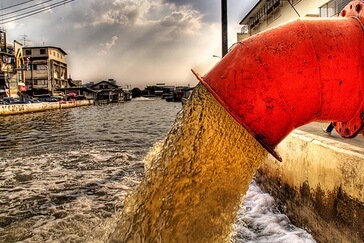4 Ways to Prevent a Sewage Backup in a San Francisco Home
When sewage overflows into a home, the result is never pleasant. While some accidents are unavoidable—homes in San Francisco, in particular, are quite prone to sewage leaks—there are a number of preventative steps you can take to avoid a sewage backup.
 If the worst already has happened and you need a sewage cleanup team that prides itself on prompt response and professional protocol, contact Allied Restoration Co. Serving home and business owners throughout San Francisco, we can turn back the clock on flood damage, sewage spills and more. Call our 24/7 help line at 415-529-5637.
If the worst already has happened and you need a sewage cleanup team that prides itself on prompt response and professional protocol, contact Allied Restoration Co. Serving home and business owners throughout San Francisco, we can turn back the clock on flood damage, sewage spills and more. Call our 24/7 help line at 415-529-5637.
Here are four ways to prevent sewage backups in the home:
1. Avoid placing foreign objects, grease, oil and other inappropriate substances in sinks and toilets.
Sewage backups are sometimes a result of faulty or inefficient city plumbing systems or inclement weather. Other times, though, forces under the control of the homeowner can contribute to a backup.
Some of the most common reasons for a sewage clog have to do with the disposal of objects and substances in toilets or sinks. As a general rule, use sinks and toilets as they are intended to be used. According to San Francisco Water, Power & Sewer, homeowners should recycle cooking oils at the appropriate stations.
2. Keep gutters, sidewalks and areas around the home clean.
Smart housekeeping practices may also help prevent sewage clogs. Forces both inside and outside the home can cause a backup; as a result, it is wise to keep the area around a house clean and free from branches, leaves, dirt, sand, stones and any other objects that might easily flow into a storm drain.
Attentive homeowners should also make sure their gutters are clean. Objects stuck in gutters will likely find their way into a sewage drain sooner or later.
3. Pay close attention to plumbing activity during a rainstorm.
While it might not directly prevent a sewage leak, keeping a careful eye on various plumbing systems around the house during heavy storms can allow a homeowner to spot a growing problem and contact a cleanup crew before the situation gets worse.
4. Schedule regular plumbing inspections.
At least once or twice per year—and certainly after the passing of a heavy storm season—it is often helpful to have a plumber check the overall condition of a house’s pipes. An experienced plumber can spot a problem before it occurs, minimizing the risk of a sewage clog and other problems.
Sewage Cleanup in San Francisco
For complete sewage cleanup and home restoration, trust the experienced and professional team at Allied Restoration Co. Contact us today at 415-529-5637.
